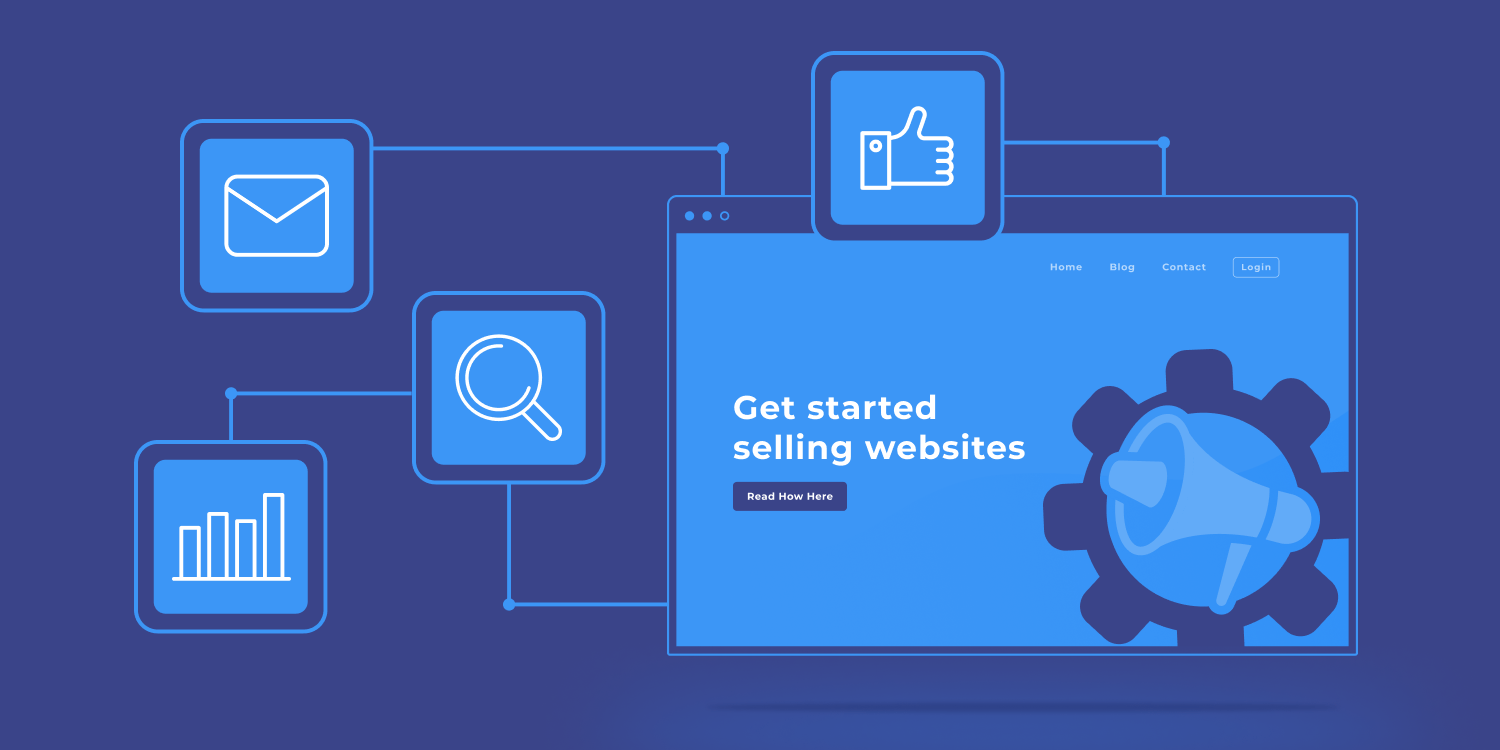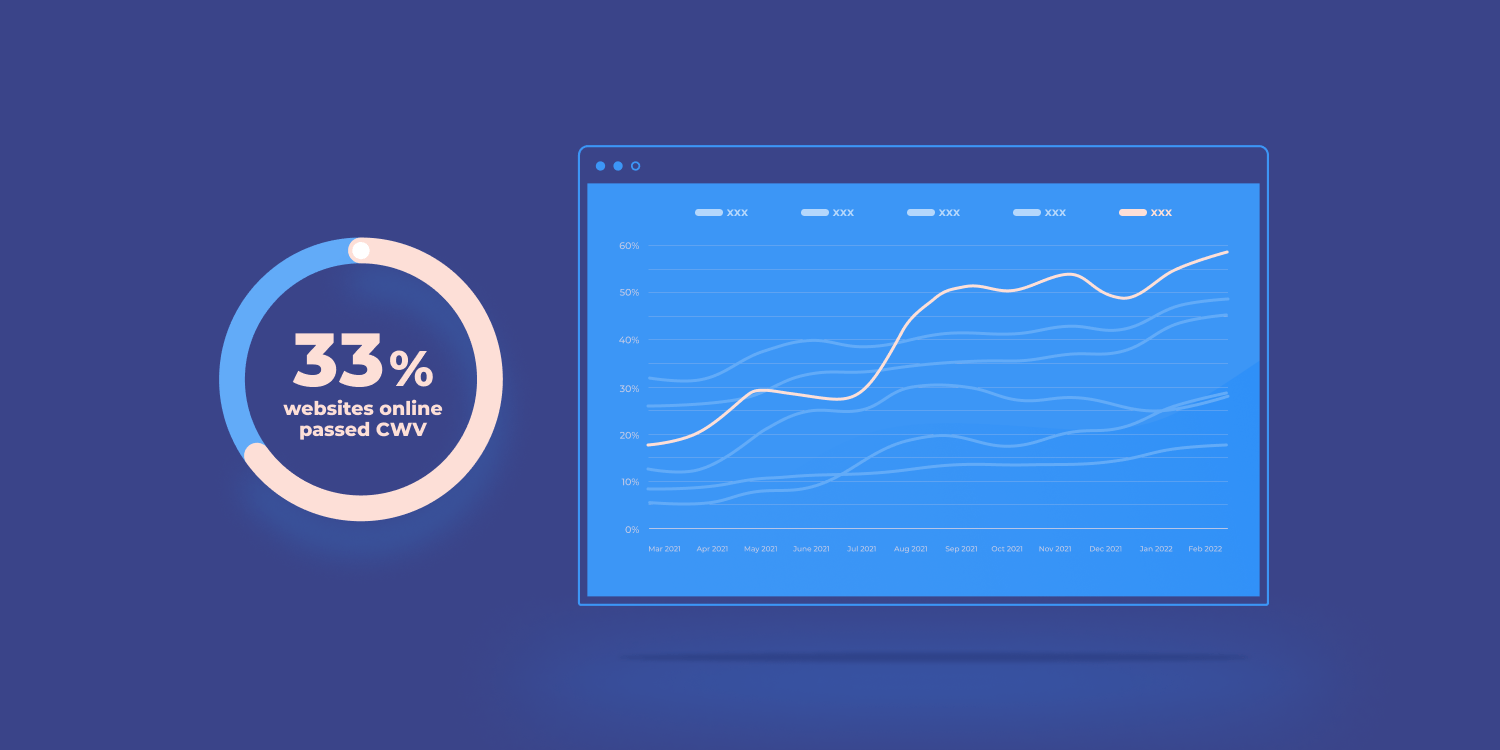Marketing automation is all around us. From automating social media posts and email marketing outreach to automatically optimizing for SEO, it's hard to imagine a world without
SaaS platforms like these to accelerate business growth for SMBs and enterprises alike.
Gaining popularity in the early 2000s, marketing automation platforms are now one of the fastest-growing industries globally, expecting to reach $25 billion in market share by the end of 2023, according to Statista. With many benefits, including increased productivity through automation of repetitive tasks to improving personalization of communication efforts with targeted messages, it's not surprising that the industry has seen so much success.
While marketing automation platforms have done an excellent job in improving how users can maximize the efficiency of their marketing efforts, many of these platforms are missing out on a huge opportunity to create additional revenue streams by offering websites to their customers.
This article will discuss why selling websites to your users is the best chance for their survival, how
website building platforms can help make getting started easier, and how one Duda customer in the industry has already seen success.
Give Your Users the Best Chance of Survival with Websites
There’s no question that every SaaS platform’s goal is to grow revenue and create a sustainable way to do so. But with many different initiatives that can help achieve this goal, where can marketing automation platforms get the most value for their efforts?
As marketing automation platforms make their money by giving their buyers the ability to reach customers efficiently, it’s only natural that adding a website offering can create an even deeper connection between SaaS platforms and their customers. This deeper connection ultimately leads to a better experience for users, making a website offering an initiative worth considering.
With a high-performing website standing as a crucial component for increasing business discoverability and chances of long-term survival, it is in the best interest of all marketing automation platforms to help ensure that their customers have a robust digital presence. Adding a website offering can also help increase the stickiness of existing offerings and create additional revenue streams for platforms that have not sold websites before.
>>Speak with an expert to learn how other SaaS platforms have successfully created additional revenue streams with Duda
Don’t Most Businesses Already Have a Website?
While it may come as a shock to some marketing automation providers, the reality is that many small businesses still do not have a website. In fact, one in every four small businesses still does not have a website, according to a recent study conducted by Top Design Firms.
This is a big problem because, without a website, these small businesses have no chance of staying competitive with other businesses that have a strong digital presence. In addition to the numerous companies that still don’t have a website, many that do have websites lack the performance necessary to convert visitors into paying customers.
One set of metrics that sheds light on the severity of the issue is
Google’s Core Web Vitals. Core Web Vitals, or CWV for short, is a set of metrics that Google uses to judge a website’s overall user experience. These metrics measure a website’s loading times, visual stability, and interactivity.
In a recent data study published by
Ahrefs, only 33 percent of all websites online passed Google’s Core Web Vitals. This means that only a small minority of websites online get easily discovered and provide the user experience necessary to build credibility for conversion.
While these numbers may seem bleak, they make an even stronger case for why marketing automation platforms should sell websites to their customers. With so much improvement needed to keep users in business, this is an excellent opportunity for marketing automation platforms to strike while the iron is still hot.
>>Learn how other marketing automation platforms have done this already
How Can Website Building Platforms Help?
If marketing automation platforms should be selling websites, what’s the best way to
build a website for users? The short answer is by partnering with a website building platform.
Building and managing websites at scale can be challenging without the right tools to make the initiative successful. However, integrating a website building platform into your marketing automation platform can make the transition much easier.
Take a look at how a website builder can make offering websites to your users a seamless process.
Partnering With a Website Building Platform like Duda Can Help:
- Speed up the process of creating or updating multiple website pages at once from internal or external collections with features like
Dynamic Pages
- Keep websites up-to-date automatically by connecting to site widgets with
Connected Data
- Automate site builds completely with instant website creation made possible through API
- Build top-performing websites for clients that are SEO friendly, personalized for the user, and are optimized for mobile or desktop
- Create
white label websites at scale with an intuitive client portal and website hosting from AWS included for a maintenance-free experience
While there are many more benefits of partnering with a website building platform, the main takeaway is that the most cost-effective and least resource-intensive way to start building websites at scale.
You can check out how SaaS platforms can take advantage of Duda’s offering
here.
What Does an Integrated Website Offering Look Like?
Broadly is one example of a Duda customer in the marketing automation industry that has drastically increased their revenue by selling websites to their users. Broadly’s marketing automation platform mainly focuses on strengthening its users’ online reputation, generating new quality leads, and improving the digital presence for their users.
Broadly has been a Duda customer since 2019 and uses the editor’s advanced capabilities for design versatility, Duda’s white-label platform also allows users to make edits to their websites, and team templates enable quicker website build times.
With these amazing features at their fingertips, Broadly has increased their overall monthly recurring revenue by 29 percent, and they are working on growing their website subscription by another 20 percent in 2022.
To learn more about how Broadly found success selling websites through Duda, check out the
Sucess Story.
While integrating a website building platform like Duda may look different for each marketing automation platform, the key is to get started selling websites to users as soon as possible. Adding a website offering will significantly differentiate your platform from competitors and create a sustainable new revenue stream to take your solution to the next level.
Ready to start selling websites to your marketing automation users?
Contact the Duda team today to learn more about integrating websites into your SaaS offering with the help of a website building platform.
Related Posts
By Amy Greene
•
February 19, 2026
Transform your Field Service Management SaaS into a growth engine. Learn how partnering with a professional website builder increases customer retention and unlocks new revenue.
By Shawn Davis
•
January 28, 2026
Duda launches "Populate Template with AI" via API for SaaS platforms, providing high-control, design-precise, and fast AI websites using custom templates.
By Ilana Brudo
•
January 8, 2026
SaaS can add a new revenue stream by embedding a white-label website builder. Follow the Crawl, Walk, Run strategy with Duda for fast, de-risked integration.
Show More














